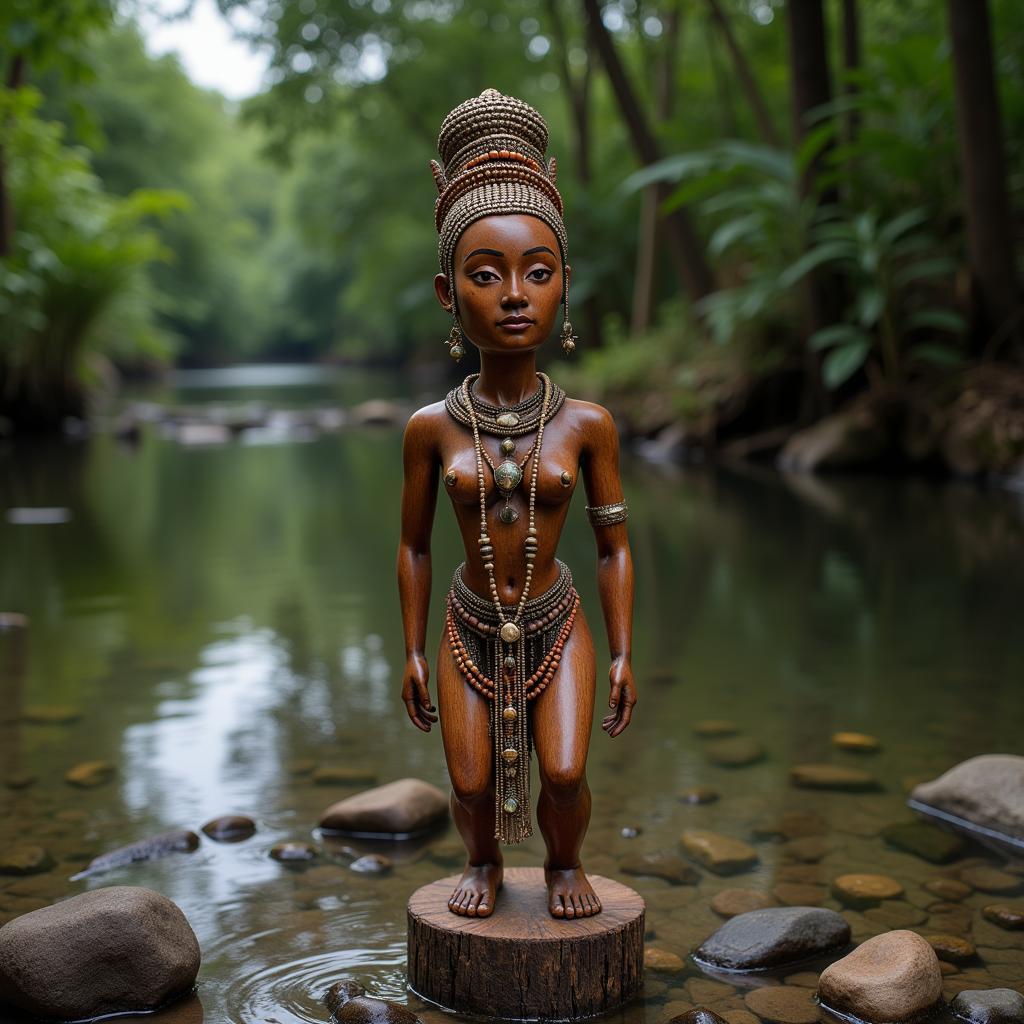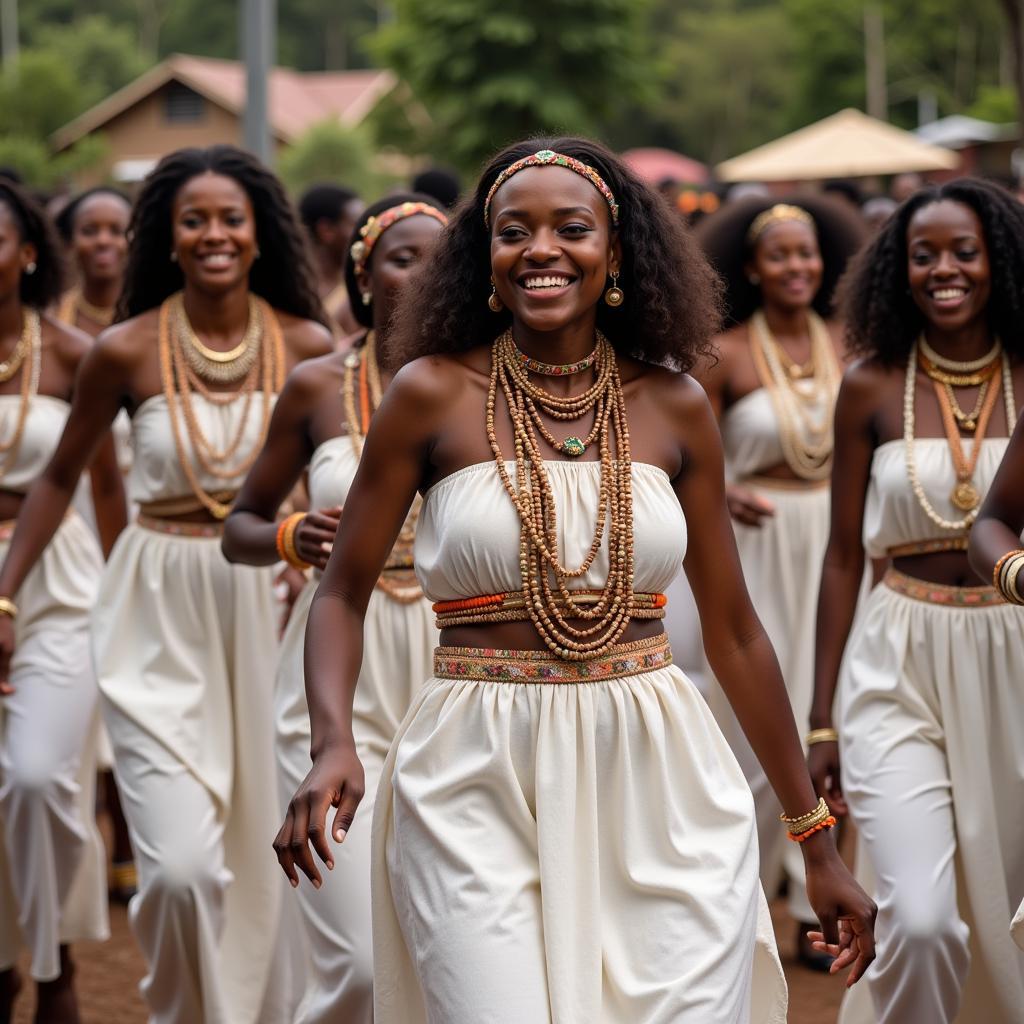The captivating history and mythology of Africa offer profound insights into the continent’s rich cultural tapestry. Among the many revered deities within the Yoruba pantheon, Osun, the goddess of love, fertility, and water, holds a particularly significant place, embodying complex gender dynamics that continue to resonate in contemporary African societies.
 Statue of Osun in a Riverine Shrine
Statue of Osun in a Riverine Shrine
Osun: Beyond Traditional Gender Roles
Often depicted as a beautiful woman adorned with jewelry and elaborate hairstyles, Osun transcends simplistic notions of femininity. While her association with love, beauty, and motherhood aligns with conventional feminine attributes, Osun’s dominion extends far beyond the domestic sphere. As the protector of women and children, she embodies fierce maternal energy and acts as a powerful advocate for their well-being.
Moreover, Osun’s role as a ruler and leader challenges traditional patriarchal structures. In many Yoruba narratives, she is revered as a wise queen, offering counsel to kings and shaping the destiny of nations. This duality, embodying both feminine and traditionally masculine qualities, positions Osun as a complex and multifaceted deity who defies easy categorization.
Challenging Patriarchy: Osun’s Influence on Gender Relations
Osun’s mythology offers compelling examples of challenging patriarchal norms. One popular narrative recounts her pivotal role in the creation of the world. According to legend, the male Orishas, initially tasked with this creation, failed to complete it successfully. It was Osun who, through her wisdom and understanding of balance, intervened and brought the world into existence. This myth highlights the importance of female power and agency, challenging the notion of male dominance in creation narratives.
 Yoruba Women Celebrating Osun at the Osun-Osogbo Festival
Yoruba Women Celebrating Osun at the Osun-Osogbo Festival
Furthermore, Osun’s association with water, a vital life-giving force, underscores her role as a source of sustenance and renewal. This connection to nature elevates her beyond societal constructs, positioning her as a fundamental force essential for the well-being of all beings, regardless of gender.
Contemporary Relevance: Osun’s Enduring Legacy
Osun’s legacy extends far beyond the realm of mythology. Her image and stories continue to shape gender dynamics in contemporary African societies. Throughout the continent, women invoke Osun’s name for strength, protection, and guidance. Her shrines remain important pilgrimage sites, offering solace and a space for women to connect with their spirituality and seek empowerment.
Furthermore, Osun’s story serves as a reminder of the importance of balance and harmony. Her ability to embody both feminine and masculine energies offers a model for a more equitable society where gender roles are not rigid or limiting.
Conclusion
The African goddess Osun offers a captivating lens through which to explore gender dynamics within Yoruba cosmology and its enduring influence on contemporary African societies. Her mythology, rich in symbolism and layered with meaning, challenges traditional gender roles, celebrates female power, and highlights the importance of balance and harmony. As we continue to navigate complex conversations surrounding gender, Osun’s enduring legacy serves as a powerful reminder of the transformative potential of embracing diverse expressions of femininity and masculinity.
Leave a Reply